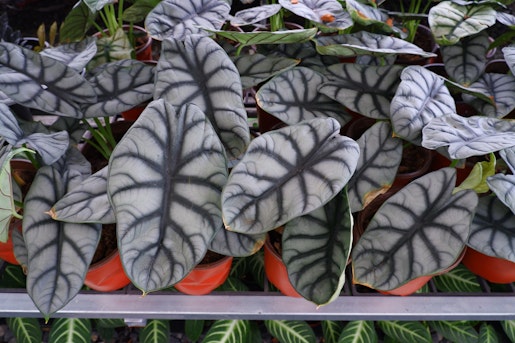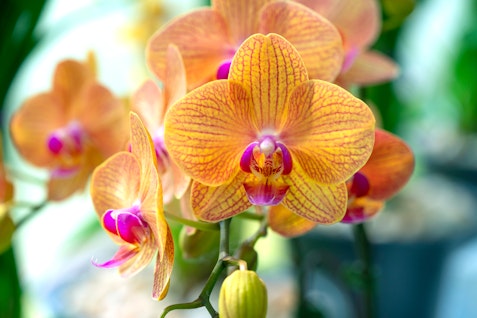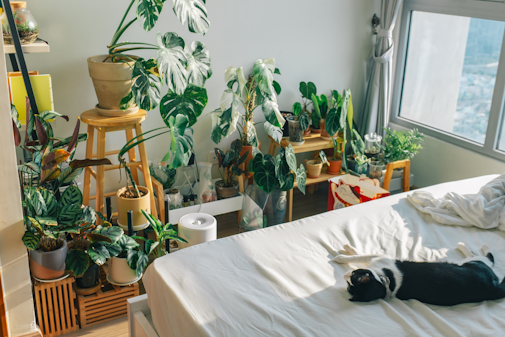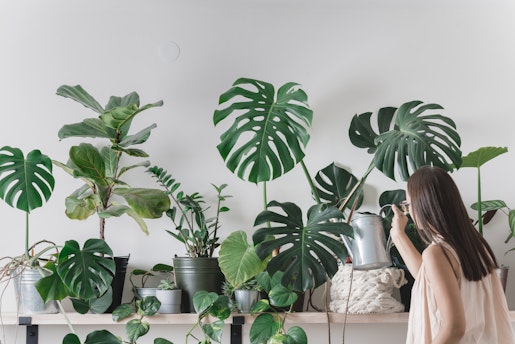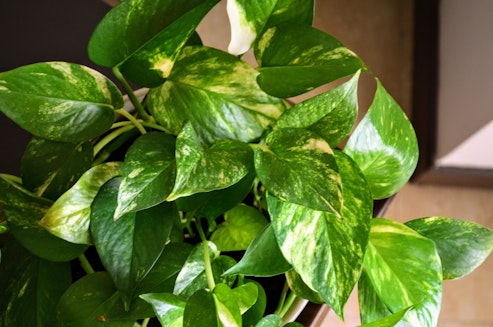
- Home
- Real vs. Faux - Which should I get?
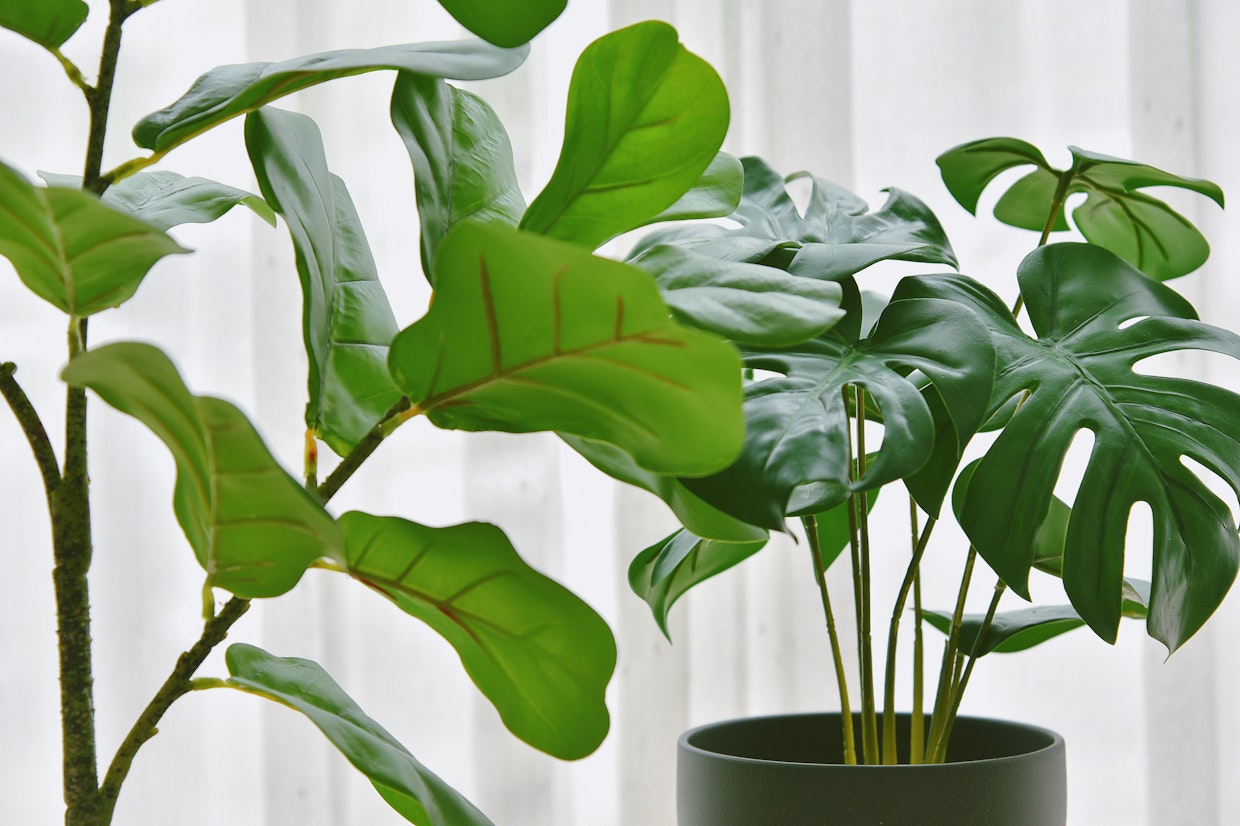
The conception of faux plants is not as modern as you might think. Fake plants made of silk became abundant in 12th Century China in fashion and furnishing, but there are known examples of fake plants in older cultures like Egypt and Rome made of other materials like cotton and stone. It was only in the 19th century, when production and trade of silk became incredibly popular, that faux plants became a common sight in the Western World.
Fast forward to the modern day - faux plants are still a popular choice for lots of people, due to their lack of care requirements and ability to be placed anywhere, regardless of light levels or temperature etc.
Faux plants are quite controversial, and are often the topic of debate. There are many who keep both real and faux plants, many who keep solely real plants and many who keep solely faux plants. But why are people so divided? What makes it such a hot issue?
Faux Plants
Normally when writing posts like these, we try to take a neutral or all-encompassing view, but the reality of this debate is that, for us, there really is only one side. The benefits of faux plants have already been summarised above. Their lack of care requirements, their ability to exist in any environment and perhaps also their reduced comparative cost. Beyond this, it is difficult to come up with any more positives. In the 19th century, when there was little to no access to plants that would survive indoors, and plants were made of sustainable materials (albeit accidentally), sure. But in the modern world, faux plants are a much more sinister product, and the negatives far outweigh the positives. Some of these negatives include:
Impact on the Environment - Most faux plants are made of unsustainable materials, such as plastic. Plastic is a hydrocarbon based product that is non-renewable and contributes to consistent draining of a finite resource, as well as the production process contributing to the levels of greenhouse gases in the atmosphere. Often, faux plants consist of multiple types of plastic, or other materials, making them mostly unrecyclable. This means that once they are no longer satisfactory, they go to landfill. Plastics like these can take up to 500 years to decompose.
Quality - Often, faux plants (unless very expensive) are produced quickly, cheaply and en masse to make the most profit. Resultantly, they often look very unlike their natural counterparts, they are prone to permanent damage and fade in the sun over time. The truth of faux plants is that their quality will only ever decrease from the moment of purchase. This means that faux plants are regularly thrown away and replaced, which only increases the negative environmental impact.
Confusing for Ecosystems - Faux plants being placed outdoors has negative effects on the environment in complex ways. Many insects rely on the shape and colour of flowers to know where to visit for food and plants use this as a method for pollination. With a finite amount of time and energy in a day for a pollinator, wasting time on a plastic plant is not beneficial at all. On an individual basis, this seems inconsequential, but when considered collectively it can make a significant impact on the productivity of various elements in an ecosystem. Equally, for grazing or plant eating animals, often they cannot tell the difference either. Consuming a plastic plant can cause choking, digestive issues and eventually lead to death.
Lack the benefits of Real Plants - I feel the biggest negative for faux plants is what they don’t provide. Keeping live plants has numerous positive effects on your physical and mental health, as well as great aesthetic qualities too! Keeping fake plants as opposed to real means you miss out on all these great benefits.
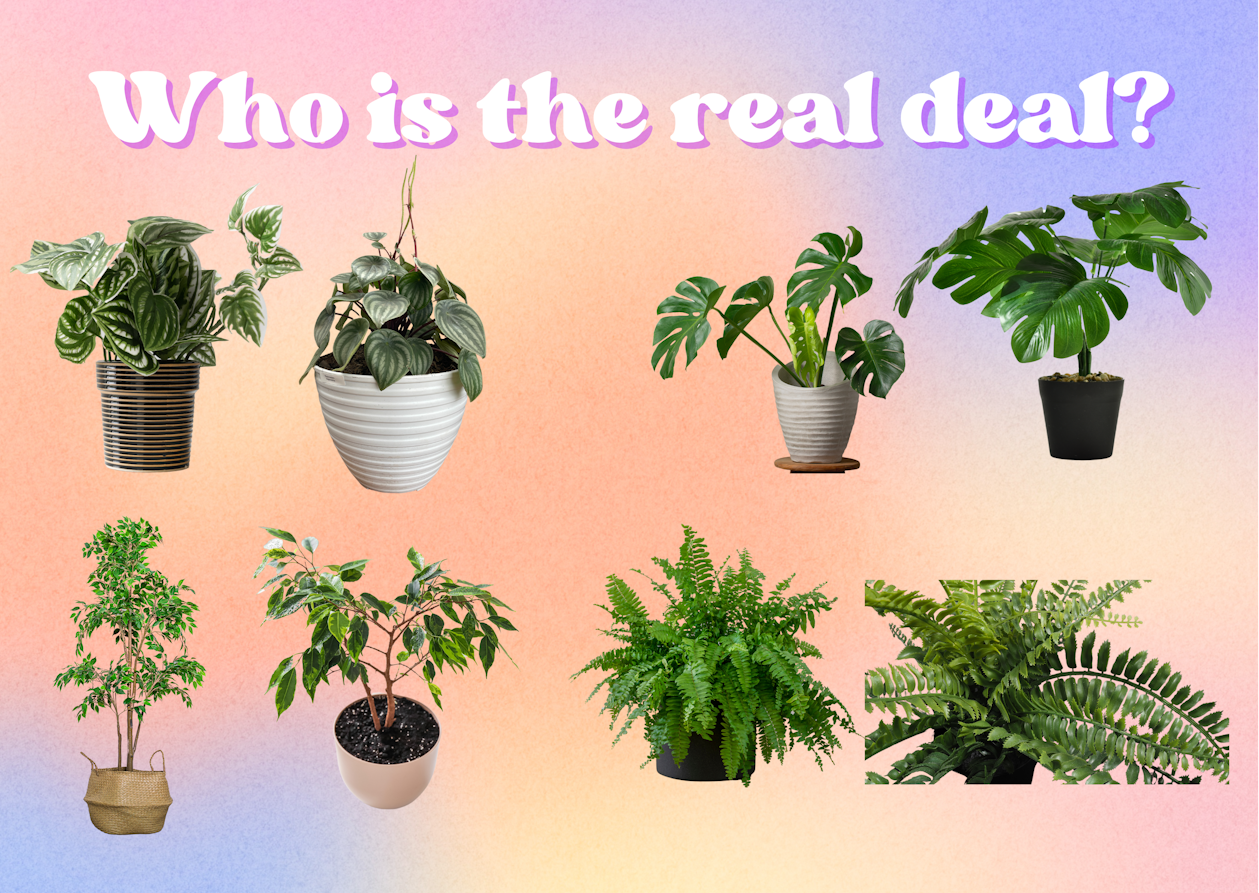
Real Plants
It shouldn’t be news to anyone that we advocate for keeping real plants. Gardening, both indoor and outdoor, is a wholesome hobby which provides people with beautiful gardens, stunning indoor spaces, produce, gifts and more and has been practised since before recorded history. We, as a species, are not strangers to the many benefits that come with keeping plants. It is impossible to write an exhaustive list of the benefits, but some major ones are listed below!
Positive Impact on the Environment - The houseplant industry alone is unlikely to make a significant difference to the removal of CO2 from the atmosphere, however. The keeping of plants indoors and outdoors does a number of things to contribute. The increased popularity of plants translates to increased care and action in various pro-environmental endeavours such as charity work or re-greening. Equally, investment into nurseries and independent plant retailers keeps demand high, which in turn creates a larger and more successful industry that produces huge numbers of plants, conducts lots of groundbreaking research and increases awareness. While the plants in your home probably do not contribute to the reduction of greenhouse gases in the atmosphere, they are a link in a very long chain that has an overwhelming overall impact on the environment.
Benefits Mental Health - A lot of research demonstrates that plants help people to regulate their schedule, relax, calm down and help them think. In one study, students examined while being able to see natural spaces do better on average than students examined in a room with no adjacent natural space. Further, the students with the natural view demonstrated better memory retention, decreased restlessness and greater concentration. There are also studies that link plants to reduced levels of stress, anxiety and depression! While plants are by no means a solution to cognitive and emotional health issues, they certainly create an atmosphere of calm and peace that can help in the reduction of various anxieties that are created in the bustle of everyday life.
Benefits Physical Health - It has been proven that being surrounded by nature improves our physical health. Something about our instinctive drives - existent long before our affiliation with bricks and boardrooms - means that being surrounded by foliage and greenery slows our heart rate, and reduces our blood pressure and helps us to recover from mental fatigue quicker. Gardening has also proven to be a really popular method of light exercise for people of reduced mobility and old age!
Great for Communities - Community garden spaces are proven to reduce a number of health and social issues, while improving the quality of life for local people. It has been demonstrated in data that an increase in community garden space is linked to a reduction in crime, a reduction in poor health, increase in access to different kinds of healthy produce, improving local biodiversity, increasing local soil quality, reducing waste, improving economic opportunities for otherwise disadvantaged people and utilising otherwise derelict land at a cost of zero carbon emissions! Similarly, amateur botany and tropical plant keeping commonly has local groups of interconnected hobbyists who share knowledge, plants and skills with one-another, sometimes forming open societies, small communities, building friendships and hosting events. Botany is known as a discipline for the large scientific contribution from hobbyists and amateur gardeners alike!
Gets Better over Time - If provided with the right care, any plant brought home will likely improve, meaning that from the day of purchase your plant will look better! Some plants can be adapted, changed or shaped to provide different things and produce different aesthetics. Meaning that there is always an option that suits your conditions and needs.
Keeps on Giving - Plants can be propagated, by means of cutting, planting seeds or separating pups. This means that the acquisition of a single plant can provide a limitless number of plants to be passed around or keep for yourself! This means that you can get new plants by simply having some already! This means that getting more plants doesn’t necessarily affect your bank account, and for propagated plants there is no negative environmental impact involved whatsoever!
Encourages Education - Plants are a crucial aspect of our environment. They are to thank for the continued existence of our planet, and as a result it is important that we, as a species, keep studying them to see what we can do to help, preserve and restore them, as well as what they can do to help us! Being plant positive is a great way to encourage people of all ages to engage with nature in positive ways, and helps people of all ages to understand the harmony and balance of the natural world in a fun and rewarding way!
Conclusion
Ultimately, no-one should feel pressure to get real plants. For some people, it simply is not possible. Perhaps your time is limited, or your space is unfavourable. In any case, you don’t have to feel guilty for wanting a bit of colour and a natural looking space in your home without the complexities attached. I do thoroughly believe that there is a plant option out there for everyone, and if you look hard enough, you may find yours! I cannot advocate for the ownership of plastic plants without feeling hypocritical, but equally I cannot demonise faux plants and their owners without being a hypocrite either. In the modern world, it is impossible for us to remove any negative environmental impact in our lives, and while it would be nice to reduce as much as we can, we have to make compromises in order to find the right balance between righteous and realistic. What I can do however, is demonstrate the wealth of positives about owning real plants and allow people to make their own decision accordingly! I hope everyone can one day engage with the endlessly fascinating and the ever-rewarding nature of plants… but we all have to start somewhere!
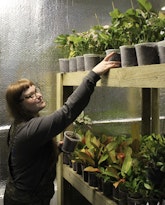
Lisa Price
Lisa Price is the visionary founder behind Root Houseplants, a thriving venture that has blossomed into one of Liverpool's most beloved botanical havens. With an intuitive passion for greenery and an entrepreneurial spirit, Lisa embarked on her journey to bring the beauty of nature into urban spaces. Driven by her personal quest for unique and affordable houseplants, Lisa recognised a gap in the market and decided to take matters into her own hands. In 2017, she took the leap, establishing Root Houseplants to provide enthusiasts with a diverse array of botanical treasures. Through dedication and determination, Lisa's business flourished from its humble beginnings on eBay to a thriving online platform and eventually, a brick-and-mortar store in Liverpool previously in West Kirby. Root Houseplants quickly gained recognition for its exceptional offerings, from prestigious publications such as The Times, Living Etc, and Independent Liverpool. Lisa's expertise extends beyond being a business owner; she is an advocate for plant education and community engagement. Root Houseplants isn't just a shop—it's a hub where enthusiasts gather to exchange knowledge, share stories, and foster a deeper connection with nature. Lisa's love for plants goes beyond the business realm; it's a personal passion that permeates every aspect of her life. When she's not tending to her extensive collection of Hoya, Aroids and Arids, Lisa can be found at home with her beloved sausage dog, Bubs, or indulging in her guilty pleasure of binge-watching Grey’s Anatomy and cooking shows in her pyjamas. Root Houseplants continue to thrive, spreading joy and greenery throughout Liverpool and beyond. Her unwavering commitment to quality, sustainability, and customer satisfaction ensures that Root remains a cherished destination for plant enthusiasts seeking to cultivate their own urban oasis.
More by Lisa PriceRelated Articles
View all articles
